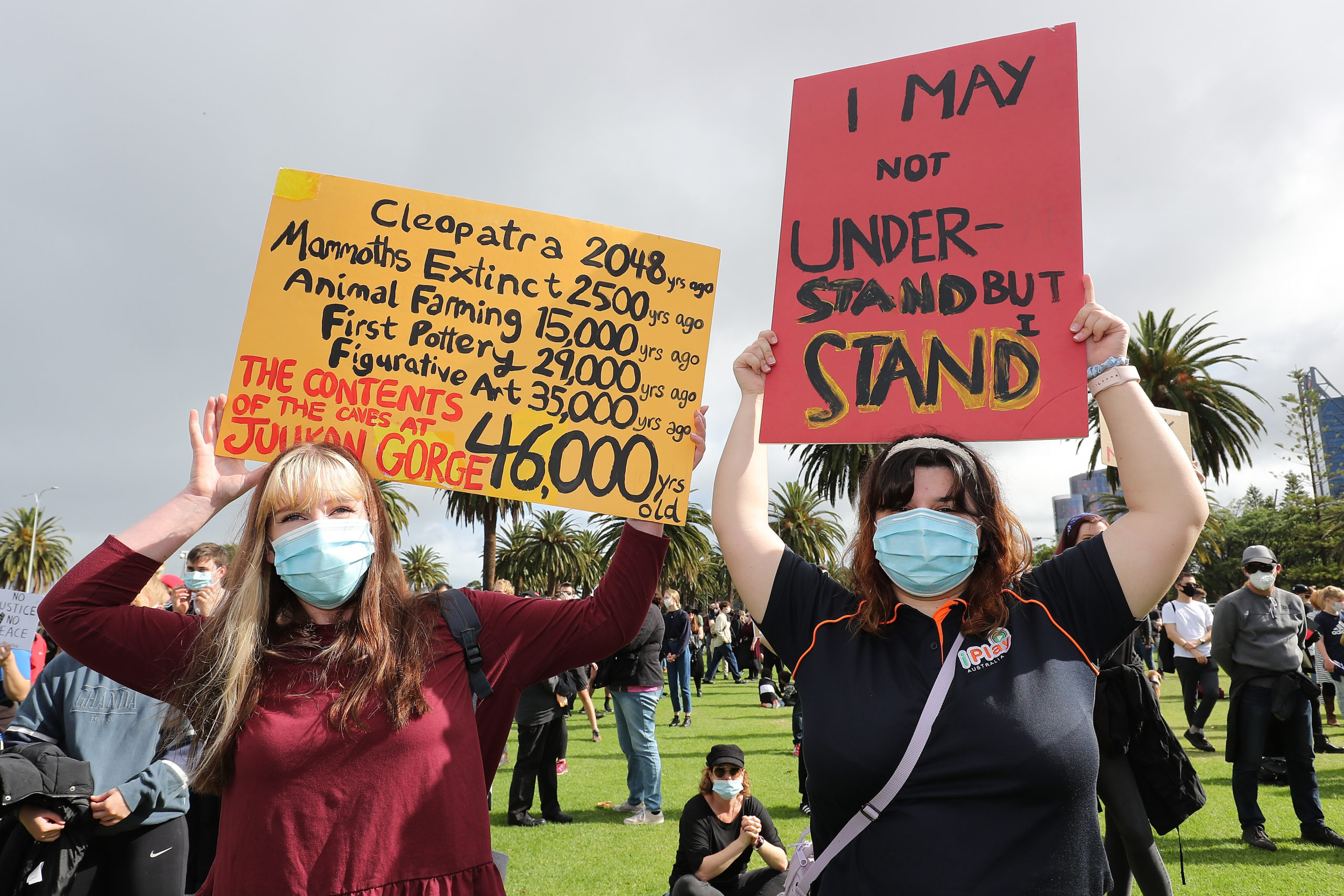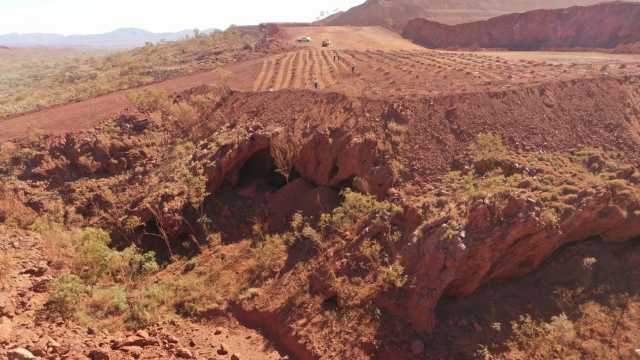Executives at Rio Tinto are not sorry for destroying a 46,000-year-old Aboriginal heritage site in the state of Western Australia, according to a secret recording obtained by the Australian Financial Review. The mining company had previously expressed regret for the distress caused to some people, but didn’t actually apologise for the destruction of the ancient archaeological site containing priceless artifacts and cultural significance to the Puutu Kunti Kurrama and Pinikura People, a distinction that was made explicit on a company phone call last week and leaked to the AFR.
Rio Tinto’s Chris Salisbury, who heads the department of iron ore at the company, explained in a conference call on June 10 that the “apology” statement released on June 1 about the destruction of the site was very specific for a reason.
“That’s why we haven’t apologised for the event itself, per se, but apologised for the distress the event caused,” Salisbury said on the call, according to the AFR. The “event,” of course, being the destruction of an important archaeological site.
Destruction of the site was reportedly legal under Section 18 of Australia’s Aboriginal Heritage Act, but the act gained worldwide attention for its brazen disregard for history and immense disrespect to the area’s traditional owners, the Puutu Kunti Kurrama and Pinikura People (PKKP). A close reading of the original June 1 statement makes it abundantly clear that Rio Tinto chose its words carefully.
“We pay our respects to the Puutu Kunti Kurrama and Pinikura People (PKKP). We are sorry for the distress we have caused. Our relationship with the PKKP matters a lot to Rio Tinto, having worked together for many years,” Rio Tinto said on June 1.
Sorry you were offended, more or less. Not sorry we did it.
More disturbingly, Salisbury tried to play off the entire incident as a misunderstanding with the traditional owners, something that obviously appears to be a lie in retrospect.
From the Sydney Morning Herald on June 6:
“We are sorry that the recently expressed concerns of the PKKP did not arise through the engagements that have taken place over many years under the agreement that governs our operations on their country,” Rio Tinto said.
Chris Salisbury, Rio’s iron ore chief, said the company “thought we had a shared understanding with the PKKP about the future of that site”.
“Clearly there was a misunderstanding,” he told the ABC on Friday, as the public pressure showed no signs of abating. The miner has apologised to the traditional owners, committed to an internal review and said it would seek to repair its relationship with the PKKP.
Yeah, right.

Rio Tinto funded an exploration of the site in 2014, revealing countless artifacts in the area dubbed the Juukan 1 and Juukan 2 rock shelters. But they were all destroyed in the Rio Tinto blast, which happened on May 24, 2020 so that the company could continue mining iron ore in the region.
The Sydney Morning Herald detailed just some of the findings:
Grinding and pounding stones, representing the earliest use of grindstones in the Pilbara. A marsupial bone dating back 28,000 years which had been sharpened and turned into a pointed tool. And a piece of a 4000-year-old plaited “hair belt” with DNA linking it to today’s PKKP people.
“Our people are deeply troubled and saddened by the destruction of these rock shelters and are grieving the loss of connection to our ancestors as well as our land,” PKKP chair of the Land Committee, John Ashburton, told the Sydney Morning Herald.
Rio Tinto, which has offices all around the world, did not immediately respond to a request for comment on Monday morning about Salisbury’s statement.
Western Australia’s capital city of Perth held a Black Lives Matter at Langley Park on Saturday against the advice of local health authorities, but protesters were largely able to maintain social distancing during the rally that preceded a march through town. Many people at the rally also wore masks.
One speaker at the Perth rally, which attracted 12,000 people, pointed to the Rio Tinto building visible from the park and told of how the company had been destroying Aboriginal heritage sites for years.
Rio Tinto had revenue of $US43.16 ($63) billion last year.
